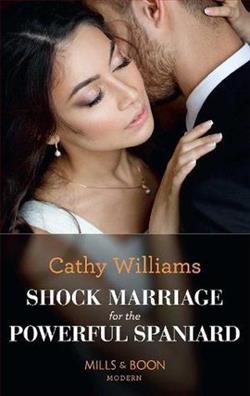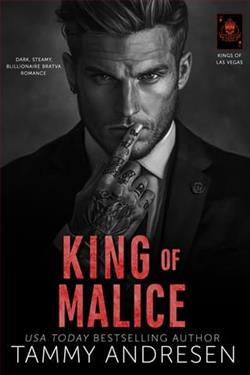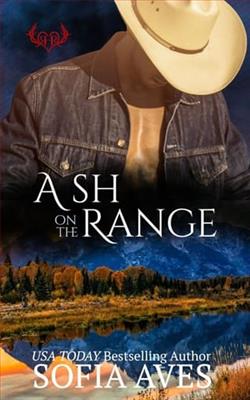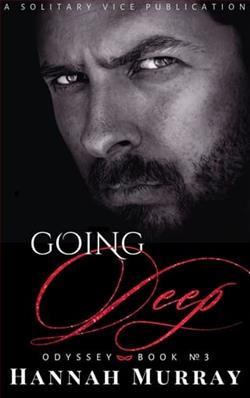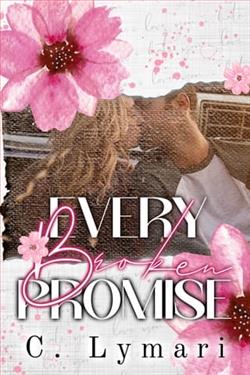Page 39 of The Bear's Heart
The frown on Arthur’s face deepened as he surveyed the city lying before us, but he remained silent. I had to wonder how safe this place was.
Two days had passed since the battle of the River Glein, and now, escorted by Prince Beli, we finally reached the city to find the lower east gates flung open to let us in. High, well-maintained walls towered over us, dotted with guards, their crenellations still in remarkably good condition. But when we passed inside, something quite different lay before us. Just as in many of the old Roman towns I’d visited, across the old geometric street plan new lanes twisted, narrow and muddy. Over great swathes of the city the Roman houses had been refurbished, or completely replaced with wattle and daub wooden buildings sporting roofs of tatty thatch.
In the once majestic Roman forum in the upper part of the city, the buildings which had housed the bureaucrats had long since been knocked down or bastardized. As in Caerwysg, and every other Roman town or city I’d seen, broken pillars like jagged teeth were all that marked where the state offices had stood. At some point, someone had ordered the construction of a wattle and daub church. It was bigger and more impressive than most I’d seen, with cloisters huddled by its side and a lone bell tower beside the clergy’s lodgings.
“Our cathedral.” Prince Beli’s voice was tinged with bitterness. “Where our bishop celebrates mass every day.” He turned his head away, as though he couldn’t bear to look at it, his upper lip curling. “Where my father spends most of his time, on his knees praying for salvation to a God who isn’t listening.”
A market selling all manner of useful things occupied the remainder of the forum. Stalls, some up against the very walls of the cathedral, sold wooden kitchenware, livestock ranging from baskets of young chicks through goats and sheep to horses, metal farm implements, sweetmeats, bolts of cloth, shoes, strings of misshapen cured sausages, and hot food, the rich scent of it enticing. The thronging people trampled piles of animal droppings and food remnants without seeming to notice, and the noise of their voices rose toward the overcast sky. The whole place bustled with lively vigor, and over it hung the miasma of stale urine, dirty stables and unwashed mankind I’d begun to accept as par for the course in fifth-century Britain.
Our horses’ hooves clattering on the paving, we rode past the cathedral, where beggars of all ages, from ragged, skinny children to old crones leaning on crutches, sat on the wooden steps, holding out their hands in supplication. Beyond the cathedral and behind the market stalls lay a series of haphazard, animal-filled pens and barns, with manure heaps steaming in the early evening chill. A cockerel strutted his stuff on top of a midden and, lifting his head toward the sky, benefited us with a chorus that would have woken the dead.
“Shut up, you stupid bird,” shouted a man dragging a sheep away by its curly horns. “’Tis nearing time to sleep, not rise.”
A ripple of laughter spread through the ranks of warriors as we passed him.
King Manogan’s palace was another example of the curious cobbling together of Roman and British architecture I’d seen in other towns. A thatched hall, like the one at Din Cadan, had been stitched onto the side of a decaying Roman townhouse which possessed a pillared portico and impressive marble steps manned by heavily armed guards.
Beside the palace stood the customary stables and accommodation for our men and beasts. It wasn’t until we’d settled and cared for our horses, and Arthur had assured himself our weary warriors were being received with enough hospitality, that he allowed us to follow Beli into the hall.
King Manogan sat on an elaborately carved throne which occupied a raised dais at the top of the hall. Long red robes reached to his bony ankles, where his dirty feet, with yellowed nails like a bird’s talons, showed in open-toed leather sandals. A full head of silvery grey hair fell to well below his shoulders like a mane, and a beard, which should have been white but was stained yellow and brown with dirt, reached nearly to his ornately buckled leather belt. Bushy white eyebrows jutted over shadowed, red-rimmed eyes, and a great beak of a nose overhung a hard, thin-lipped mouth.
The men of his court lined the hall to either side, hastily summoned once our advance guard had warned him of our imminent arrival, I presumed. They were a mixed bunch, some as old as he was, several leaning on sticks for support. Amongst them mingled his warriors, some younger men more of an age with Prince Beli, a few with greying hair who perhaps had been young when Manogan had first become king. Many bore signs of the recent battle Beli had told us about in which his older brother had fallen: bandaged limbs or the odd severed stump, blackened eyes, fresh scars. Perhaps many men were missing for the same reason.
Manogan’s warriors had not joined us as reinforcements. Only Beli and the two messengers who’d met us on the Roman Fosse Way, bearing news of further Saxon raids, had taken part in the battle. And surveying them now, I felt glad. They looked a sorry, beaten lot, their faces barely hiding the resentment they must be feeling toward a rescuing army from another kingdom. Not a man amongst them had a smile on his face. Annoyance rose in me for Arthur and our men, but at the same time, I could understand why they might not be feeling too grateful.
We walked up the center aisle of the hall between the rows of watchful men. Arthur, his helmet tucked under his arm, halted at the foot of the steps to the throne, ahead of Merlin, Cei and me. He made a small bow to the older man, a mere inclining of the head. When king met king, it seemed, no one had precedence.
Manogan rose slowly to his feet, leaning one hand on the arm of his throne for support as though his bones pained him, and returned a similar bow. In the twenty-first century, I’d have guessed his age at over eighty, but here, with notoriously shorter life spans, he might well be a little over fifty.
“I bid the Dux Britanniarum welcome.” His voice rasped, deep and husky. “And thank him for his services in battle.” He gestured with his free hand, and half a dozen young men, scarcely older than Drustans, stepped forward out of the shadows behind the throne. “And I present you with our conscripts for yourcombrogi. Linnuis gives to you her young men, that you may make them warriors in your army.”
The six young men, all clad in mail shirts and leather braccae, and carrying red painted shields, went down on their knees in front of Arthur, bare heads bent.
“My lord Arthur,” began the tallest, a lad with jet black hair and a fuzz of patchy beard on his pimply chin. “We vow to serve in your army until the end of our days, whenever that may be. We vow allegiance to you and your causes, and loyalty to your royal house.” He sounded as though he’d learned his speech off by heart. His fellows mumbled the same words in a self-conscious chorus after him.
Arthur bade them rise with a single gesture. “I thank King Manogan for these new recruits. After losing too many of our own men, fighting against the Saxons beside the Glein, they are a welcome addition to the army of the Dux.”
His gaze returned to the youngsters. “You will go immediately to join my army in the stables and barracks, and introduce yourselves to my general, Theodoric.”
The young men bowed in unison and hurried on their way, perhaps eager to join the victorious army, or maybe just to please their previous king. From now on, though, they would answer to no one other than Arthur.
Manogan lowered himself back onto his throne with the air of a man for whom this was a painful operation. Arthritis, in all probability, inflaming his joints and making movement difficult. What wouldn’t modern anti-inflammatories have done for this man.
He gestured to his waiting servants. “Bring seats for my honored guests.”
Servants dragged forward four ornate seats, and we sat in a semi-circle before the king. His courtiers remained standing, but shifted restlessly to ease their positions. Prince Beli moved behind and to the left of the throne, beside a much younger, auburn-haired boy, who, by his looks, must surely have been his brother, Anwas. But hadn’t Beli told us this brother was training to be a recruit in our army? Why wasn’t he amongst the six young men we’d just received?
“Tell me about the battle,” Manogan barked, his tone that of a man used to being obeyed. “How many ships? How many of the enemy are no more?”
Arthur didn’t seem to mind his host’s bad manners. With good grace, he recounted the story of the battle in detail. I didn’t need to hear it, and instead, my attention wandered to the other people in the hall.
Standing ramrod straight behind his father’s throne, Prince Anwas drew my attention first. He was still beardless, with an unformed boyishness about his rather androgynous face. He wore his auburn hair cut short about his ears, and his face had flushed pink with what might have been anger. Had his exclusion from the six recruits been recent, perhaps stemming from the death of his older brother? He saw me looking, and the flush spread to his ears, his eyes falling to study his boots. He didn’t look up again.
Prince Beli, standing beside his younger brother, listened intently to Arthur’s version of the battle, occasionally adding a word or two of his own when questioned by his father. However, when it came at last to the fate of the Saxon prisoners, whom we’d sent off to Caer Legeion gwar Uisc in chains and under heavy guard, his father’s face darkened with anger.
He banged his age-spotted fist on the arm of his throne. “A single living Saxon raider is an anathema to me.” Spittle flew. “You should have slain the lot of them and hunted down the ones that fled. I’ll not see a Saxon live who engaged in the slaughter that took my son and heir from me.”
Beli glanced at him, his expression pained. He was the son and heir now, and after him came young Anwas, so although war had deprived Manogan of his oldest son, he did at least still have an heir. His father’s thoughtless words, apparently forgetful that he had two other sons, must have hurt Beli, and probably young Anwas too.








